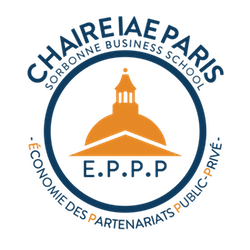Auction versus Negotiation in Public Procurement: Looking for Empirical Evidence
Auction versus Negotiation in Public Procurement: Looking for Empirical Evidence
Eshien Chong (ADIS – Paris 11), Carine Staropoli (CES, Paris I Panthéon-Sorbonne), Anne Yvrande-Billon (CES, Paris I Panthéon-Sorbonne)
Abstract: The relative efficiency of auctions and negotiations is still a puzzle in the literature. While auctions are the prescribed procedures and the most used ones for public procurement, in the private sector, where buyers are free to choose their purchasing method, competitive tendering is far from being their preferred option (Bajari et al. 2009).
In addition, recent empirical studies (Estache et al. 2009; Bajari et al. 2009) highlight some failures of auction procedures and identify conditions under which negotiation is more efficient. In particular, they show that auctions perform poorly when projects are complex.
In this paper, our aim is to contribute to this debate by providing an empirical analysis of how awarding mechanisms are chosen in public procurement in France. To this end, we examine a comprehensive database of 76,188 observations corresponding to the entire set of public procurement work contracts awarded between 2005 and 2007 in the construction sector. We find empirical regularities regarding the choice of awarding procedures by public buyers. However, most of these regularities do not coincide with what the theoretical literature considers as transaction‐cost minimizing behaviours. In particular, the size of the construction projects as well as the length of contracts do not appear as key determinants of the choice of awarding procedures, which translates into costly renegotiations.
DOWNLOAD THE PAPER
